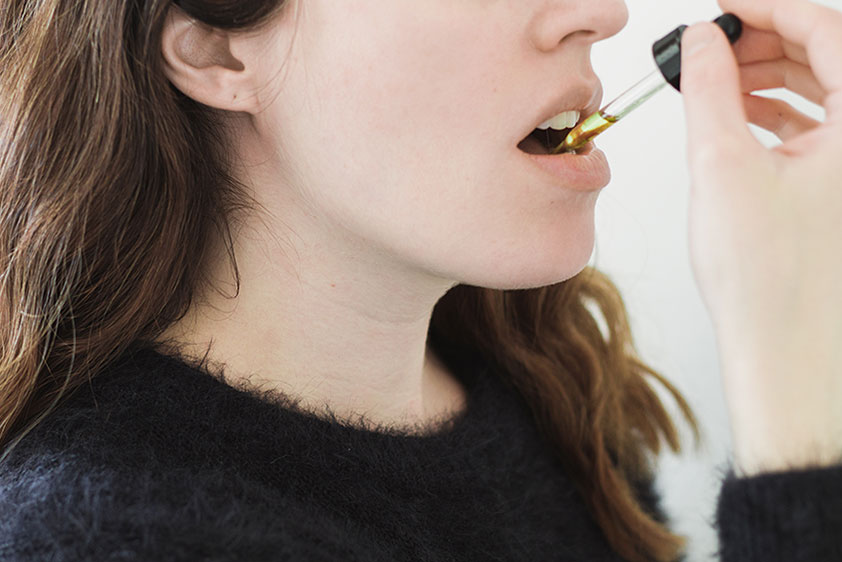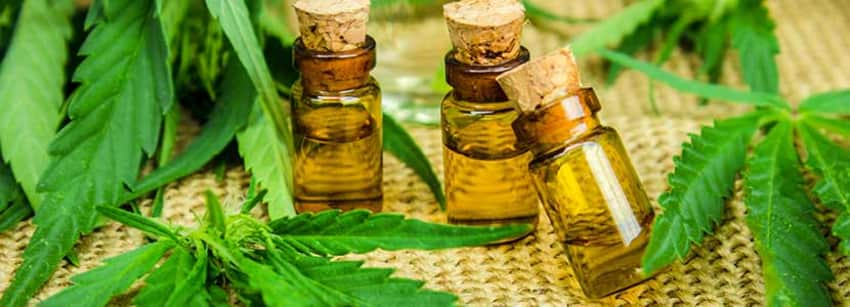
There is still much to learn about cannabidiol breastfeeding. However, more moms are turning towards it for comfort and relief. Consuming marijuana while nursing can adversely affect your baby.
Cannabis and breastfeeding
The active ingredient in marijuana is THC, and it can pass into your breast milk if you smoke pot or eat an edible, among other things. Researchers have found that THC is measurable in breast milk for up to six days after women use it.
Breastfeeding while using Marijuana or THC
Experts recommend against breastfeeding marijuana because it can adversely affect the baby's brain development, and increase their likelihood of developing other health issues later on. The Centers for Disease Control (CDC), major medical organizations such as the American Academy of Pediatrics and American College of Obstetricians and Gynecologists, all recommend against marijuana use during pregnancy and breastfeeding.

Breastfeeding with CBD
Even though research on cannabinoids' effects on babies is still early, most experts agree that breastfeeders should avoid them. That's because the chemicals in marijuana can cause a range of problems, including drowsiness, poor sucking, and lowered feeding times.
Using CBD While Breastfeeding
Scientific evidence suggests that CBD can pass into breast milk. This could have a negative impact on your baby's brain development, and lead to learning and behavioral problems. According to the CDC, it is best to avoid breastfeeding CBD products as they could contain harmful additives.
Breastfeeding: Topical Cbd
While you can apply topical CBD to your skin while nursing, it is best to consult an IBCLC. According to CDC, some topical cbd product ingredients can be harmful for babies.
Eat Edibles while Breastfeeding
You can eat cannabis edibles while you breastfeed if you are a recreational user. However, it is not recommended. It's because the chemicals in marijuana are stored within your fat cells. Therefore, they can stay in your body for days or even weeks.

Using a Breast Bud Pump While Breastfeeding
Although you may be able use a breast-bud pump while breastfeeding, it is not recommended. The pump can't remove THC from breastmilk. This could negatively impact your baby's overall health.
There are many different options when it comes to pumping. Talk with your doctor first before making any decisions. They can help you pick the best option for you, your baby, and your lifestyle.
How to choose a good pregnancy and breastfeeding journal
Keep a record of all your medical appointments while pregnant. This will allow you to easily refer back to them in case you have any questions about the effects of cannabis on your baby. That way, you'll know which medications are safe to take and which ones aren't.
FAQ
Are CBD companies a good investment?
The answer depends on the question you are asking. They can be a great investment if it is money you are after. If however, you only want to invest in something that may help others, then no.
Is there any evidence that CBD helps with anxiety?
CBD oil can be used to treat anxiety. It interacts with CB1 receptors and CB2 receptors in your brain. The mood and stress responses are controlled by the endocannabinoid system.
Our bodies activate the CB1 receptor when we feel anxious. This receptor activates and sends signals to amygdala which is responsible for emotional processing.
When the CB1 receptor gets blocked, the amygdala can't process emotions. As a result, people who take CBD experience fewer negative feelings.
2017 research showed that CBD has been shown to reduce anxiety in those suffering from socialphobia. Another study revealed that CBD helped reduce symptoms of PTSD.
A 2018 review concluded CBD's anxiolytic qualities could be helpful in treating generalized anxiety disorder.
Another review suggested that CBD might also reduce panic attacks.
Numerous studies have found that CBD can increase anxiety in mice.
The researchers believe that this discrepancy between human data and animal results may be due to differences in how humans and animals respond to CBD.
There are no long-term safety studies available for CBD. However, most experts agree that CBD is safe when used as directed.
Is the CBD market growing?
Yes! And that growth is expected not to stop as legalization continues across North America. Canada was the first country to legalize recreational cannabis use. Several states also have medical marijuana laws.
This trend will likely continue for at least another decade as more states pass legislation allowing access to medicinal marijuana.
Legalizing marijuana is also a good economic decision. Legalizing pot can provide many benefits, not only for farmers but also for the general public.
It could reduce crime rates, by decreasing illegal drug availability. It could also generate tax revenue for the government.
As legal marijuana is more popular, people may be less likely to smoke. This would reduce the likelihood of having hangovers. It also means lower healthcare costs.
Chronic pain sufferers may find that marijuana can actually improve their quality of life. Many believe THC, the active component in marijuana, is responsible for relieving symptoms like muscle spasms or nausea that can be caused by chemotherapy.
Finally, marijuana might become a valuable tool for treating mental illnesses such as depression and anxiety. Some studies have shown that marijuana can treat schizophrenia.
The CBD industry is on the rise, and there are many obstacles in its path.
Is CBD a good investment?
As more people are aware of the many benefits of hemp-based products and their market, it continues to grow. There could be $1B worth of hemp products on the shelves by 2022.
Market growth is expected at an annual rate in excess of 20% up to 2020, when it will reach $2.5Billion.
Hemp oil is already used in many beauty and health care products such as lotions, shampoos, lip balms, moisturizers, body butter, and skin creams.
There are many companies that produce CBD-infused foods, snacks, pet food and dog treats.
CBD is currently legal in all 50 US states. This may change quickly. CBD is legal in all 50 states, but more research will be conducted to determine its potential uses. Businesses will have an easier time operating legally.
With all these factors in mind it is clear that CBD investing can prove to be a lucrative venture.
Can CBD have a future in medicine?
The answer is yes. It's not because it has medical benefits, but rather because it can help people feel better and not get high.
People who want an alternative to prescription medications will love the fact that you don't feel any different after you use it.
Studies have shown that cannabis is effective in relieving pain, anxiety, depression and insomnia.
Cannabinoids found in cannabis also interact with the receptors in our brains. This interaction results in feelings of relaxation as well as well-being.
So if you're interested in using cannabidiol (CBD) oil for health reasons, then it's important to understand what exactly it does and how it affects us.
Which countries produce the highest quality CBD?
The United States produces most CBD products.
But Canada, Australia, New Zealand, and Israel are also producing high-quality CBD products.
What's the future for the CBD industry?
The future is bright for the CBD industry. It's clear to see why so many people have jumped on this industry. This market is expanding exponentially with CBD products being purchased globally at a total of $1 billion.
In fact, according to Statista, global sales for cannabidiol (CBD) were expected to reach $22.4 billion in 2019. This is an almost 200% increase from 2018!
The CBD market is also predicted to grow at a compound annual growth rate of 22.5%, which equates to nearly $6.8 billion in revenue by 2022.
This is great news both for those looking to enter the market as well as existing companies. But, it is important to remember that the CBD industry is still in its infancy. There will be many challenges.
Statistics
- however, one study also found that these effects were virtually abolished when the original media (a nutrient broth agar) was replaced with one containing 5% blood (increasing the minimum concentration to ~160 μM CBD) [179]. (ncbi.nlm.nih.gov)
- The use of these products is likely to become even more widespread if the World Health Organization's recommendation that CBD no longer is scheduled in the international drug control conventions is adopted by the United Nations member states [201]. (ncbi.nlm.nih.gov)
- As a substance that was federally illegal before the passage of the 2018 Farm Bill, hemp-derived cannabinoids with no more than 0.3% THC still face a regulatory grey area. (forbes.com)
- CBD seems unlikely to directly influence sleep in healthy humans [115] (and maybe “sleep-promoting” in those with certain comorbid conditions) (ncbi.nlm.nih.gov)
- The inhibition of FAAH is predicted to lead to an increase in brain and plasma concentrations of AEA, which acts as a partial agonist at CB1R and CB2R, thereby increasing endocannabinoid tone [92, 110]. (ncbi.nlm.nih.gov)
External Links
How To
What are the issues that the CBD industry faces?
The current market for CBD products is growing at an incredible rate. There are many hurdles businesses face when trying to enter the CBD market. These include a lack of consumer awareness, high cost of entry, limited access to capital, and regulatory uncertainty.
Many consumers aren't aware of the benefits and limitations of CBD. They are unable to make an informed decision about buying CBD products.
As a result, most CBD companies rely heavily on word-of-mouth marketing. This is expensive as they must pay advertising costs and to hire staff to market their brand.
The high production costs are another issue that new entrants to the CBD industry face. The raw materials needed to create CBD products are quite expensive. CBD oil can only then be produced if the hemp has been grown in a specific environment.
To grow enough hemp for CBD oil production, it costs approximately $1,000 per acre. As a result, many small farmers cannot afford to start.
A lack of capital access is another problem that CBD market newcomers face. Due to the stigma surrounding the industry, banks discourage many people who wish to start businesses.
The sale of CBD products is still subject to regulatory uncertainty. There are currently no clear guidelines regarding how CBD products should be marketed.
Although states have passed laws restricting CBD products sales, these policies are not yet national.
Only Nevada, Maine, and Nevada have legalized recreational pot.
Some states, such as Michigan and Massachusetts, are looking at similar measures.
These changes could cause increased competition among CBD manufacturers.
These factors are why many entrepreneurs prefer to work from home than open a physical store.